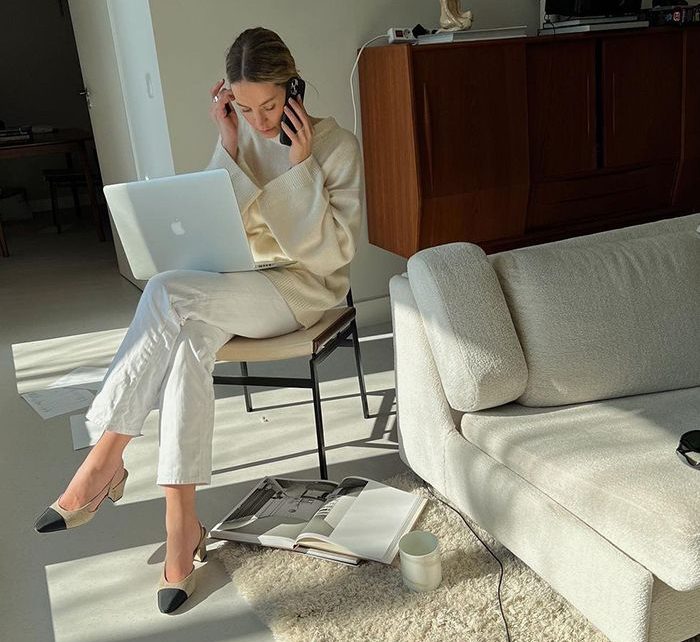Shopping for beauty is hard. When shopping for clothes, we typically know within the first few seconds of looking at something whether we like it. Then, we can try it on to double check we’re making the right decision. Once we have bought it, providing we keep the labels on, we can even return it if we change our minds. When it comes to beauty, however, things couldn’t be more different.
Judging a beauty product by its packaging is very much like judging a book by its cover—what’s on the outside can’t determine how good the product is. So typically, before buying a beauty product we have to read about it or, at the very least, get some grasp of what it promises to do. Once it’s open, it’s yours and there’s no turning back. Don’t like it? Swallow the cost and move onto the next. Believe me, I want you to know that despite being a beauty editor, I truly do understand how difficult it is to part with money for a beauty product you’ve never tried.
And while shopping for beauty has always been difficult, over the past few years, things became even trickier. The pandemic closed physical retailers (some for good) and online shopping now reigns supreme. The trouble with this is that the success of our beauty choices relies heavily on in-person interactions. Without physical stores, we can’t test products before we buy them and there’s no salesperson on hand to call on for advice. Instead, we blindly click add to basket and keep our fingers crossed until it arrives.
I’ll be honest, I used to hate shopping for beauty online. Brands simply weren’t providing adequate resources to ensure we, the customer, were making the right decision and refused to be any more lenient when it came to refunds. On top of that, even as a beauty editor, I struggled to find legitimate reviews and insights. (Always keep an eye out for ‘sponsored reviews’ on websites—those ones are always biased.)
But I’m pleased to admit that in recent months, I’ve found my online beauty shopping groove. A whole bunch of tools have come onto my radar that make shopping online a total breeze. Don’t believe me? Keeping scrolling for the 7 tips that will teach you how to successfully shop for beauty products online.
With foundation shade ranges expanding massively to cater to more skin tones, selecting the right shade for you should be easier than ever. However, choice often gets in the way and leaves us feeling confused. In stores, you can typically test different shades on your face and even take home a tester to give a go. The online equivalent of this process is, I believe, way more foolproof.
I know what you’re thinking, shade matchers are notoriously rubbish, but believe me when I say that they have come on leaps and bounds. Il Makiage, for instance, has a shade matcher that is very rarely wrong. But if they do get it wrong, you’ve got 60 days to try it and send it back.
Other brands with impressive shade matchers include Charlotte Tilbury (Who What Wear Editor Emma Spedding was blown away by how well it matched her foundation) and Maybelline.
This genuinely blows me away every time I stumble across it. Often, when shopping for makeup products, you will see a button that says ‘try me on’. Usually you will find this on brand websites, opposed to retailers, but you can always head back to your chosen retailer to buy the product once you’ve ‘tried it’.
These buttons allow you to try the product on virtually. Simply turn your camera on and choose which product and shade you want to try. If it’s not quite right, there’s no need for mucky removal like there would be in store, just select another shade and the computer does all of the hard work for you.
My favourites? Rose Inc‘s try on service is exceptional. I love flitting between different shades of the creamy lip and cheek colour to decide which one suits me best (you just have to make sure you head over to Space NK to buy the products). I also often find myself turning to e.l.f.‘s try on whenever they bring out a new product. Most notable, however, is probably MAC’s. With a huge amount of shades out there in just about every product, being able to try them all on with just a few clicks is time-saving genius.
If you’re fed up of making the wrong product choices online, why not make something totally bespoke to you? Function of Beauty uses a simple quiz format to create products best suited to you. I’m a big fan of their shampoo and conditioner in which you can personalise the scent, colour, and formula. Although, the brand also offers bodycare and skincare products following the same model. Either buy as a subscription, or as a one-off.
When it comes to more pressing skin concerns, it can be easy to feel as though you’re constantly being wronged by online beauty shopping. A huge amount of money, time, and products can be wasted on trying to fix skin problems. That’s why, if you have a problem you really can’t get to the bottom of, I highly recommend looking at services such as Skin + Me. Take a consultation and a doctor will review it. The expert will then draw you up a regimen, including prescription-only treatments should you need them, and send them to you in the post. All from £24.99 per month.
I wouldn’t usually recommend leaning on services such as online routine quizzes, however I do believe they have their place—especially if you’re loyal to one brand. For example, navigating The Ordinary‘s line-up of products is no mean feat, especially if you don’t have a huge amount of skincare knowledge. To avoid making a wrong turn and ending up with products your skin doesn’t like, simply take the brand’s regimen quiz, answer questions on your skin, and the AI can make the selects for you. Other quizzes I find to be particularly helpful are Glossier and Aurelia London. Providing the quizzes are from reputable brands whose line-up is impressive across the board, then I’m happy to recommend.
This is without a doubt the most effective and impressive way that retailers have adapted to our new beauty shopping needs. Both Cult Beauty and Liberty London have launched online ‘concierge’ services to help you make the right beauty choices.
Cult Concierge is made up of a team of experts waiting to help you make informed choices when it comes to your beauty routine. Simply drop them an email at [email protected] or visit the website to shop the team’s go-to products.
Liberty London, however, has a complimentary personal shopping service that can be booked virtually (as well as in-store). Book your virtual beauty appointment now to discuss your main beauty concerns and be pointed in the right direction.
Not too dissimilar to the concept of a concierge are online classes and consultations. Plenty of skincare and makeup brands offer expert-led classes which can be attended virtually. There, you can learn more about the products before committing to buy anything and suss which ones will be for you.
Charlotte Tilbury, for example, offers a number of free and paid consultations that cover topics from foundation and skincare to bridal makeup and application techniques. The best bit is that the cost of paid-for consultations (for example, the bridal consultation is a 1-2-1 session that lasts 90minutes and costs £45), is fully redeemable against product at the end.
Also in the realm of makeup, Bobbi Brown offers a number of free sessions to help with more generic application tips or opt for a fully customisable virtual beauty service.
Skin consultations are harder to find for free, however natural beauty brand Pai has some really great experts on hand to help answer your skincare questions in their virtual consultations. Choose between 10-minute or 30-minute sessions. And don’t worry, they won’t shove product recommendations down your throat but rather listen to your skin concerns and offer sound advice.
Trust me, it has taken a long time for me to get on board with this one. Any mention of the metaverse is enough to send shivers down my spine. I am somewhat of a technophobe and hate the idea of anything about real life becoming eternally virtual.
However, with that being said I do believe that when it comes to beauty shopping, the metaverse could be put to good use. For example, brands like Charlotte Tilbury and Giorgio Armani are already diving into the metaverse by opening ‘virtual stores’. You can browse a virtual shop, discover more about the products, and generally get a little slice of in-person shopping while slumped on the sofa. It’s genuinely pretty cool.
Next up, online perfume shopping is hard—read this and you’ll 100% choose the right now.




